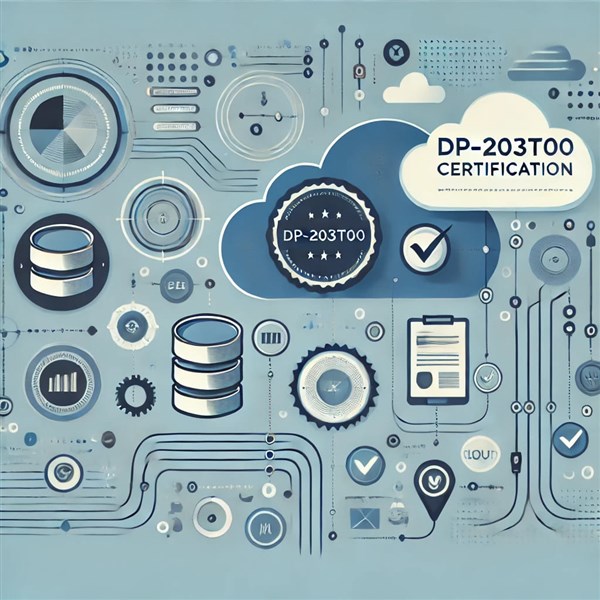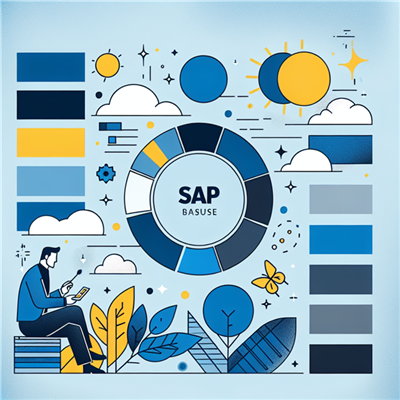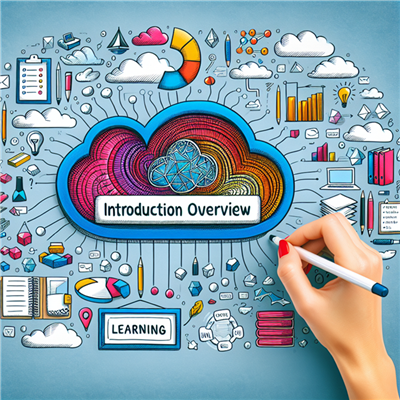
In today’s era of big data, the role of a data engineer is indispensable. Organizations worldwide depend on skilled data engineers to handle and transform raw data into actionable insights. Among the various platforms, Microsoft Azure is recognized for its powerful and scalable data services, making Azure Data Engineers some of the most sought-after professionals in the IT industry.
If you're looking to jumpstart or elevate your career in data engineering, the DP-203T00: Data Engineering on Microsoft Azure course offers an excellent opportunity. This training provides a hands-on experience in building and managing data solutions using Azure’s advanced tools, preparing you for success in this evolving field.
In this blog, we’ll explore the core concepts covered in the DP-203 course, showcase their real-world applications, and explain how these skills can help you thrive as a data engineer.
Core Concepts Covered in the DP-203 Course
The DP-203 course is comprehensive, covering the entire data engineering lifecycle—from data ingestion and transformation to storage and analytics. Here are the key concepts and skills you'll master:
1. Azure Data Lake
Azure Data Lake is a scalable data storage service designed for big data workloads. It allows you to store large volumes of structured and unstructured data in its raw format.
Key Skills You’ll Learn:
- Data Storage: Implement and optimize Azure Data Lake for efficient data storage.
- Data Ingestion: Ingest data from multiple sources, including IoT devices, social media, and enterprise systems.
- Data Security: Apply security controls and access policies to protect sensitive information.
Real-World Application:
In the finance and healthcare sectors, organizations use Azure Data Lake to store historical data for long-term analysis. A financial firm, for example, could store transaction data for future analysis to detect fraud patterns.
2. Azure Data Factory
Azure Data Factory (ADF) is a cloud-based service that facilitates data integration and the creation of data pipelines.
Key Skills You’ll Learn:
- Data Pipeline Creation: Automate the movement of data between services such as Azure Data Lake, Azure SQL Database, and Azure Synapse Analytics.
- ETL (Extract, Transform, Load): Build ETL processes to prepare data for storage or analytics.
- Data Orchestration: Manage workflows to ensure timely data processing.
Real-World Application:
Retailers can use ADF to automate the flow of sales data from point-of-sale systems into Azure SQL Database for real-time analytics, aiding inventory and sales management.
3. Azure Synapse Analytics
Azure Synapse Analytics merges big data and data warehousing, allowing for efficient data querying and analysis.
Key Skills You’ll Learn:
- Data Warehousing: Set up and manage data warehouses to handle large-scale data analysis.
- Big Data Processing: Use Apache Spark within Synapse for distributed data processing.
- Analytics Integration: Incorporate machine learning and real-time analytics for advanced insights.
Real-World Application:
An e-commerce company can analyze customer purchasing behavior across millions of transactions, using Synapse to predict trends and personalize marketing campaigns.
4. Data Security and Compliance
Ensuring data security and adhering to regulatory standards are critical components of modern data engineering.
Key Skills You’ll Learn:
- Data Encryption: Secure data at rest and in transit using Azure’s encryption services.
- Role-Based Access Control (RBAC): Set up RBAC to limit data access to authorized personnel.
- Compliance Management: Ensure data practices comply with regulations like GDPR and HIPAA.
Real-World Application:
Healthcare organizations rely on these skills to safeguard patient data, ensuring compliance with industry standards such as HIPAA.
5. Real-Time Analytics with Azure Stream Analytics
Azure Stream Analytics allows you to analyze and process data in real-time, offering instant insights.
Key Skills You’ll Learn:
- Event Stream Processing: Manage real-time data streams from IoT devices and applications.
- Real-Time Data Transformation: Apply data transformations as streams are processed.
- Power BI Integration: Visualize real-time data trends with Power BI dashboards.
Real-World Application:
In manufacturing, Azure Stream Analytics can monitor machinery performance in real time. Companies can proactively address equipment issues, reducing downtime and costs.
6. Data Transformation with Azure Databricks
Azure Databricks is an Apache Spark-based platform optimized for Azure, ideal for large-scale data processing.
Key Skills You’ll Learn:
- Big Data Processing: Harness Spark for parallel processing of massive datasets.
- Collaborative Notebooks: Work collaboratively with data scientists and analysts using Databricks notebooks.
- Advanced Analytics: Implement machine learning models for predictive insights.
Real-World Application:
Telecommunications companies use Azure Databricks to process call detail records (CDRs) in real time, helping them identify fraud or network congestion.
7. Monitoring and Optimizing Data Solutions
The DP-203 course emphasizes monitoring data systems and pipelines to ensure performance and cost efficiency.
Key Skills You’ll Learn:
- Performance Monitoring: Set up dashboards to track the health of data pipelines.
- Cost Optimization: Identify opportunities to reduce costs through resource management.
- Troubleshooting: Resolve data pipeline issues to minimize downtime.
Real-World Application:
A logistics company might use Azure Monitor to track the performance of its delivery tracking systems, ensuring accurate, real-time updates for customers.
Boost Your Career with Azure Data Engineering Skills
The DP-203 course equips you with an array of valuable data engineering skills that are in demand across multiple industries.
Career Opportunities:
- Data Engineer: Design and manage data pipelines and storage systems.
- Big Data Engineer: Analyze massive datasets using tools like Spark and Azure Databricks.
- Data Architect: Build scalable, secure, and efficient data architectures.
- BI Developer: Create models and reports to help businesses make data-driven decisions.
Salary Expectations:
Azure data engineers can expect competitive salaries, with entry-level roles earning between $110,000 to $140,000 annually, and senior positions such as Data Architects commanding over $160,000.
Why Choose the DP-203T00: Data Engineering on Microsoft Azure Course?
The DP-203 training course is designed by Microsoft experts, covering the latest features and services offered by Azure. Completing this course prepares you for the DP-203 certification exam, validating your skills and expertise in data engineering and setting you apart in a competitive job market.
Start Your Journey with Koenig Solutions
At Koenig Solutions, we offer expert-led training for the DP-203 course. Whether you prefer online or on-site learning, our programs provide the flexibility to accommodate your schedule. Enroll today to take the next step in your data engineering career!
Conclusion
The DP-203T00: Data Engineering on Microsoft Azure course offers a comprehensive dive into the tools and techniques needed to succeed in today’s data-driven world. Mastering Azure’s services—like Data Lake, Data Factory, and Synapse Analytics—can open doors to lucrative career opportunities and help you become a key player in business intelligence and decision-making.







COMMENT